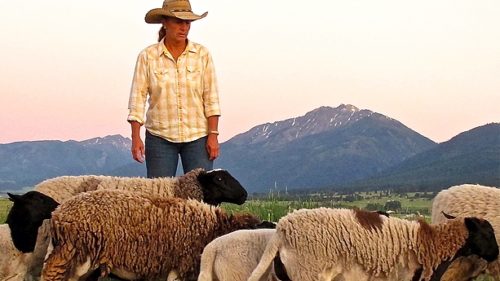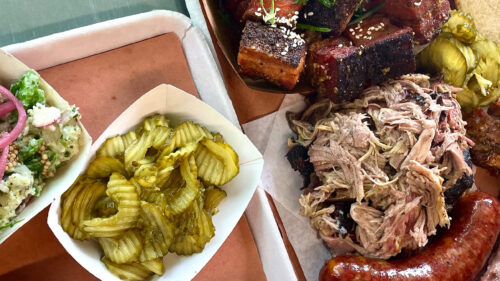This year at Feast, Portland’s citywide dining festival, Burgerville is debuting one of the most daring burgers in the United States. No, the latest addition to this beloved local chain doesn’t come with a fried-chicken bun or pickled crickets. The new “No. 6” (named after the atomic number of carbon) features local ingredients from farmers aiming to combat climate change and rebuild healthy ecosystems: a Grand Central Bakery bun made with local heirloom grains. Cheese from Face Rock Creamery on Oregon’s South Coast. And the patty — the raison d’etre for this burger, in fact — is pasture-raised beef from Carman Ranch in the Wallowa Valley.
Sixteen years after owner Cory Carman began raising grass-fed beef on her family’s ranch, she is as well-known among sustainable-agriculture advocates around the country as she is among Portland chefs. Carman Ranch has shown thousands of diners that Oregon pasture-raised beef can be flavorful and nutritious.
Carman’s business has evolved from selling quarters of beef in parking lots to supplying New Seasons Market as well as restaurants, like local favorite Burgerville and James Beard Award-winning steakhouses. Along the way, the relationships her ranch has built with restaurants in the Portland area show the impact of Oregon’s local food economy in a new light. For one, it takes a state to grow a farm. And in sourcing from local farms like hers, Cory Carman’s customers are sustainably investing in the land itself.
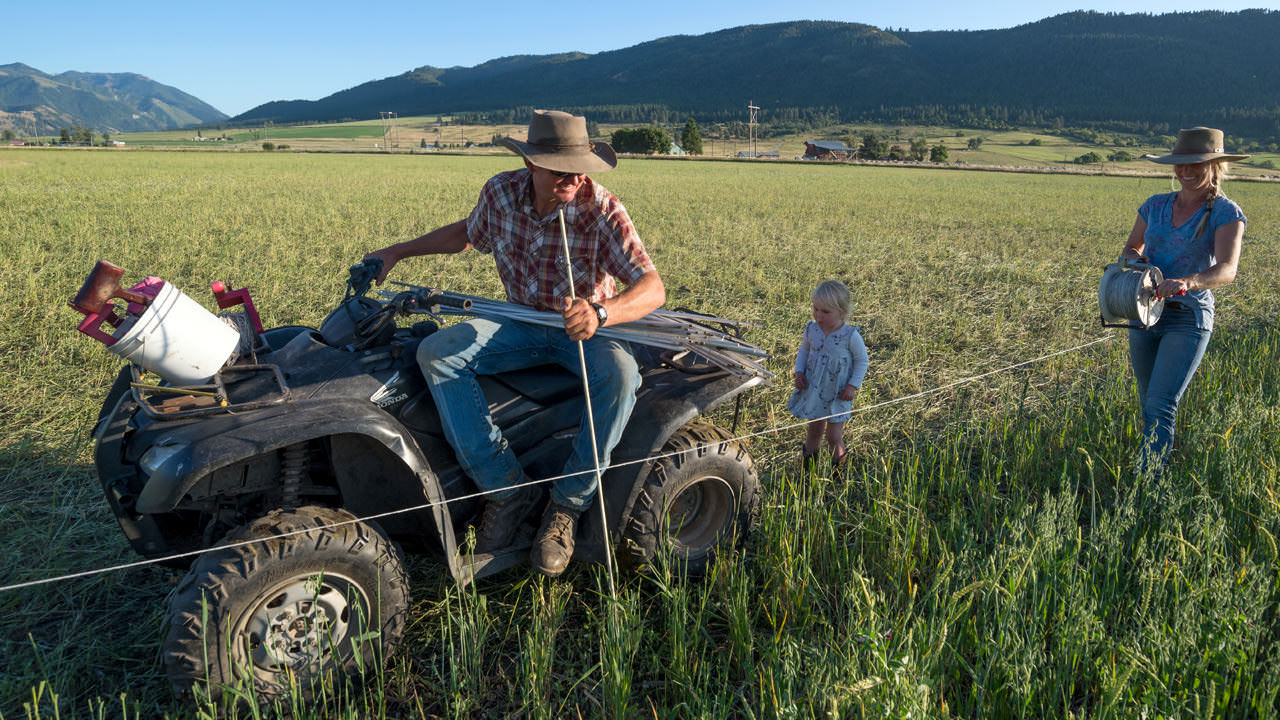
It Starts on the Ranch
A six-hour drive east of Portland, the Wallowas shoot up from the Zumwalt Prairie valley as if the earth had shivered in surprise. In the green valley below those snow-striped peaks, Aimee Danch and Jeremiah Stent, Carman’s ranch managers, direct 100 head of cattle toward their next 12 hours’ provisions. The paddock of knee-high orchard grass the animals had been grazing is now flattened by hooves. Danch and Stent mark off a new quarter-acre plot in electrified twine, then roll back the string that separates breakfast from dinner. The ground shakes as the steers and heifers rush in, resembling summer camp after the dinner bell rings.
The couple farmed in California and Southern Oregon before moving to the Wallowa Valley. “There’s an abundance in Eastern Oregon that we haven’t felt in other Western states,” says Danch: plentiful grazing lands, affordable hay for the cows in wintertime — plus this gorgeous landscape.
Raising beef on pasture requires spreadsheets and complex grazing charts in order to track the growth of the grass, figure out when to move the cattle from lush irrigated pasture in the valley to arid native range, and calculate how to fatten up the herds without making their muscles tough and rangy.
The couple follows paths that Carman set out in 2003 when the Stanford-educated, fourth-generation rancher came home to save the family farm.
At the time, the 8,000-acre family farm was run by her uncle Kent. (Carman’s father had died when she was 14.) Kent was producing grains and cattle for the commodity market, where shrinking prices were driving the ranch’s finances into the red. The 24-year-old Carman, who had studied environmental policy in college, proposed they return to ranching the same way her great-grandfather had. Her hustle helped turn the farm around.
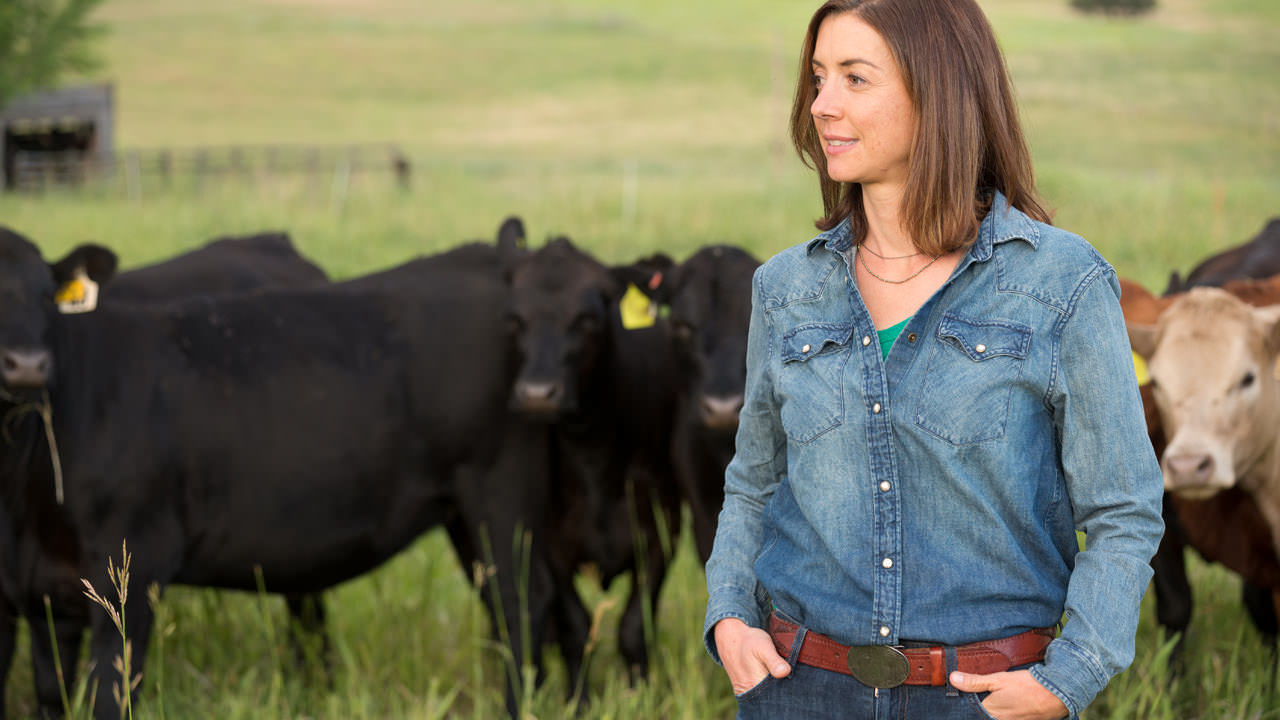
Most Wallowa Valley ranchers keep herds of cows in order to produce calves that they can sell to feedlots. Raising cattle on pasture from birth to harvest, Carman has always believed, isn’t only better for the animals and for the land — she also believes it’s better for the local economy. She calls herself a grass farmer, watching over fields whose root systems extend deep into the ground and whose topsoil grows more fertile with every year.
Just about anyone you meet who lives in the remote Wallowa Valley, from hotel clerks to sawmill owners, will tell you that the area’s a sublime place as long as you can earn a living. “If you’re just in the commodity market with ranching, you’re barely holding on,” Carman says. Calf-cow operations may seem convenient, in short, but the increasing cost of feed and supplies, combined with the relatively low price of supermarket beef, puts the squeeze on farmers.
The entrepreneurial spirit of the Wallowa Valley’s farmers and ranchers, their smarts and willingness to take risks, continually inspire her. “If I have a duty to this community, my job is to create systems that sustain this work,” she says. So in 2017, she secured enough investment to expand Carman Ranch Provisions. The business now handles the logistics of processing, distributing and selling grass-fed beef year-round to markets, restaurants and individual customers.
That’s helped her recruit five local farmers willing to adhere to her strict land- and animal-management standards, including once-skeptical hay farmers who have found that swapping out a soil-depleting rotation of wheat in favor of choice green cattle food causes the soil fertility for their next crop to skyrocket.
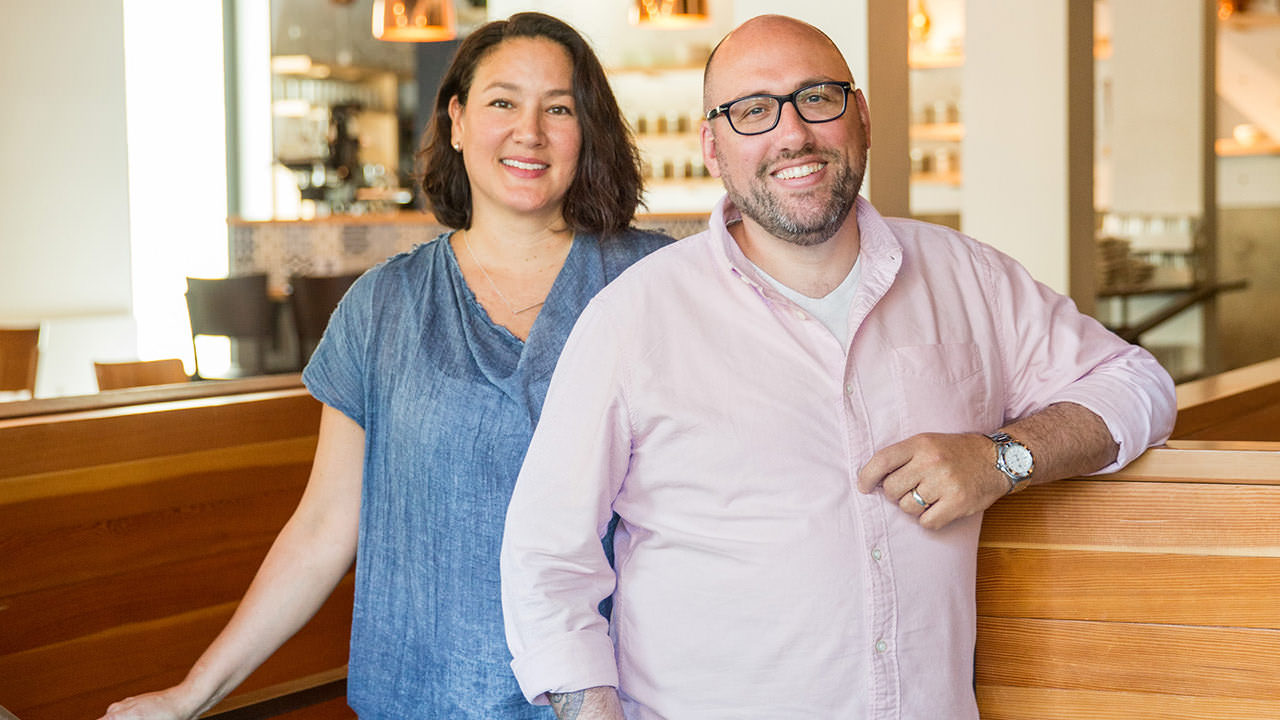
Chefs as Storytellers
Carman likes to coax chefs, buyers and journalists out to Wallowa, to see the ranch managers joke about the cattle grumbling when they switch from spring clover to summer grass, and to nibble for themselves on sweet oat sprouts and young sunflower stalks. It doesn’t take much to show how and why regenerative agriculture works. But she can’t bring every Western Oregonian to the Wallowas, so her clients become her evangelizers.
Greg Denton and Gabrielle Quiñónez Denton — co-chefs and owners of the James Beard Award-winning Ox, an Argentinian-style Portland steakhouse — have been buying Carman Ranch beef since the start. Greg Denton first encountered Carman at his first Portland restaurant. He has sauteed Carman Ranch bavettes and grilled its rib eyes for more than a decade, and he calls dibs on the ranch’s tenderloins for the filet mignon au poivre at his classic French restaurant, Bistro Agnes.
Serving grass-fed beef to customers means telling Carman’s story and the virtues of her farming practices. “You have to make sure that they understand that when it comes to grain-fed versus grass-fed, grain-fed is sweeter and more tender,” Denton says. “But what you get with grass-fed is the true sense of the terroir that the animal is on. It’s more interesting.”
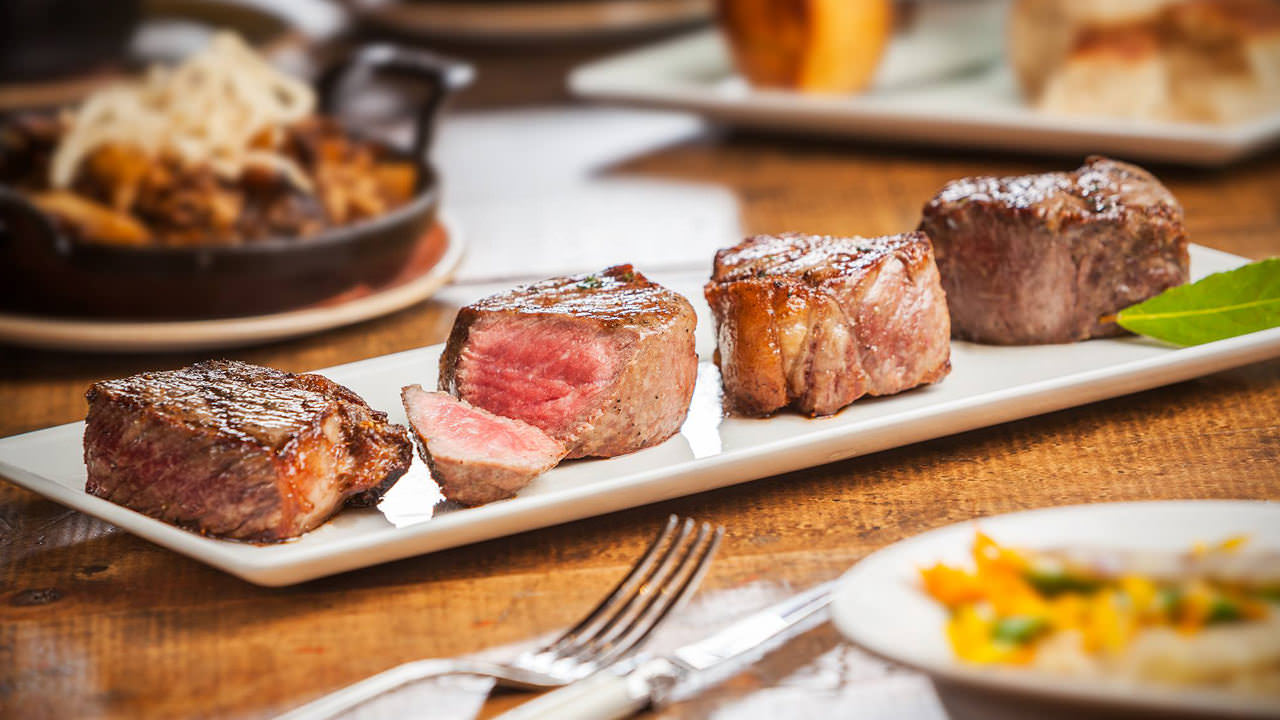
Matt Christianson, the executive chef of Urban Farmer Steakhouse in Portland’s posh The Nines hotel, offers several Carman Ranch cuts on his steakhouse’s menu, including a New York strip sampler that allows diners to compare dry-aged, grain-fed beef against pasture-raised steaks from Carman Ranch. Christianson has enjoyed building a relationship with Carman over the past seven years. He prizes the steak’s robust fat and lean, mineral flesh. “Not everybody wants to be chomping on the fattiest thing,” he says.
Hillary Barbour, director of strategic initiatives at Burgerville, says that in order to introduce the No. 6 in 2019, the company has quietly bought beef from Carman Ranch since 2017 — blending it with the Country Natural Beef in the restaurant’s burgers — to help Carman scale up.
“We wanted to [take] a stand for the Pacific Northwest,” Barbour says. “And how would we do that? We’d double down on our investment in the regional supply chain, and look for producers who are innovating and creating a future in agriculture and a future in their communities and their soil.”
Regenerative ranching practices like hers, Carman says, are critical because Eastern Oregon is the interface between the wilderness and cultivated land.
“When people choose to support these areas, they’re not just supporting communities,” she says, “but also reacting against the rural-urban divide.”
Where to Find Carman Ranch Beef
More than a half-dozen Portland restaurants serve Carman Ranch beef, from fast-casual stalwarts Burgerville (the No. 6 burger rolls out across the chain’s locations in October 2019) and Laughing Planet to the more upscale spots Beast, Bistro Agnes, Ox, Raven & Rose and Urban Farmer Steakhouse. Home cooks in the Portland area can turn to the ever-growing and widely beloved networks of New Seasons Markets and Markets of Choice, as well as a recently introduced delivery service direct from Carman Ranch.
